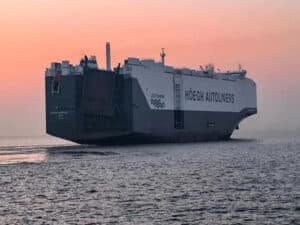
Euro MPs want to fast track setting of shipping GHG target
Written by Nick Blenkey
Specifically, the resolution "calls for all the Parties to work through the International Civil Aviation Organization (ICAO) and the International Maritime Organization (IMO) to develop a global policy framework to enable an effective response, and to take measures to set adequate targets before the end of 2016 for achieving the necessary reductions in the light of the 2 °C target [for a limit on global warming]." The resolution has drawn a very guarded response from European shipowners. "We are happy to see that the European Parliament recognizes the importance of a global solution for international shipping and gives a vote of confidence to the IMO, which should be allowed to pursue its efforts," said Patrick Verhoeven, Secretary General of ECSA, the European Community Shipowners Association. "We are however also concerned by the deadline adopted by MEPs on Wednesday. 2016 is right around the corner and as such it is rather unrealistic to expect the IMO to come up with a solution in a matter of months. A unilateral European push for a hard deadline may be counterproductive." ECSA calls IMO's track record in developing technical CO2 energy efficiency measures for the maritime sector "impressive." Following the adoption of the amendments to MARPOL Annex VI, which came into force worldwide in 2011 and which now apply to about 95% of the global merchant fleet, international shipping is the only industrial sector already covered by mandatory and binding global measures, notes ECSA. IMO also recently adopted the Energy Efficiency Design Index (EEDI), which requires all ships constructed after 2025 to be 30% more efficient that those built in the 2000s, with further efficiency improvements going forward. Finally, the shipping industry itself, prompted by an increase in bunker prices, has made strides in increasing its energy efficiency and curbing its CO2 emissions. As a result of recent efforts, the contribution of shipping to global CO2 emissions has in fact dropped, says ECSA. According to the latest IMO Green House Gas study, published in 2014, international shipping (while transporting about 90% of world trade) produces about 2.2% of the world's total CO2 emissions. This figure was 2.8% in 2007, and the total CO2 emissions from shipping went down by over 10% between 2007 and 2012. This was despite continuing growth in maritime trade which means that shipping is already delivering carbon neutral growth. "The 2016 deadline is not consistent with the steps already taken at EU level" commented Benoit Loicq, ECSA Safety and Environment Director. "By pushing for an extremely tight deadline, the EU would essentially undermine the IMO procedure. If the EU would then focus on regional measures, it would be backtracking on its own policy." ECSA says the EU Monitoring, Reporting and Verification (MRV) Regulation is intended to be the first phase of a stepwise approach geared towards a global (read IMO) solution by allowing to determine the real contribution of shipping to global CO2 emissions. "The course of action that has been agreed is to start with an accurate picture of the shipping industry's CO2 emissions in 2018 (i.e. two years after the MEP-backed deadline)," says Mr. Loicq. "If we now backtrack and skip the data collection phase altogether, how would it be possible to set realistic and fair targets?"
OCTOBER 16, 2015 — In another indicator that shipping emissions will get a lot of attention at the COP21 UN climate talks in Paris, the European Parliament adopted a resolution October 14 that says that, at the Paris talks, EU member states must call for a 40% cut in greenhouse gas emissions by 2030 and for aviation and shipping to initiate measures to curb their emissions by the end of 2016





Leave a Reply
You must be logged in to post a comment.